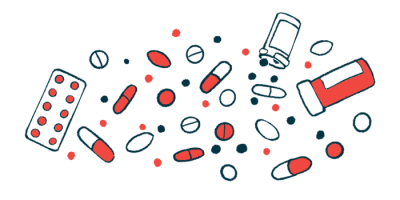Anti-CD20 Therapies Show Similar Safety, Efficacy in RRMS
Written by |

Anti-CD20 antibody therapies that target B-cells are highly effective for reducing the risk of relapses in people with relapsing-remitting multiple sclerosis (RRMS), a new analysis confirms.
The analysis did not find any significant differences in efficacy or safety among the anti-CD20 therapies currently approved to treat RRMS, though its researchers noted a need for more long-term studies to evaluate these medicines’ safety profiles.
The results were published in IBRO Neuroscience Reports, in a paper titled “The comparative efficacy and safety of anti-CD20 monoclonal antibodies for relapsing-remitting multiple sclerosis: A network meta-analysis.”
Anti-CD20 antibodies are in a class of medications that work by killing B-cells, a type of immune cell that is involved in the autoimmune attack on the nervous system that causes MS.
Currently, there are two such medicines approved to treat RRMS: Kesimpta (ofatumumab), marketed by Novartis, and Ocrevus (ocrelizumab), by Genentech, a member of the Roche Group. Ocrevus also is approved for primary progressive multiple sclerosis (PPMS).
A third, older anti-CD20 antibody called rituximab is sometimes used off-label in MS, and also has been studied in some trials. Other anti-CD20 antibodies are in development.
Various clinical trials have shown that these treatments are safe and effective in MS; however, no trial to date has compared two different anti-CD20 antibodies directly. In the absence of such a study, it’s impossible to make definitive conclusions about the relative safety or efficacy of any particular treatment. Meanwhile, researchers can use data from existing trials to gain some insight.
Now, a team in Qatar and Jordan conducted a meta-analysis that included five randomized, controlled clinical trials. Essentially, the researchers used statistical tests on pooled data from all of the trials to make comparisons among different treatments.
In total, the analyzed trials included 3,938 people with RRMS. About two-thirds of trial participants were female, and the average age in the trials was in the late 30s or early 40s.
In the different trials, some participants were given Ocrevus, Kesimpta, or rituximab. For comparison, some participants were given a placebo, while others received older MS treatments, namely Aubagio (teriflunomide) or interferon beta-1a (marketed as Avonex, among others).
Results showed that the various anti-CD20 antibodies significantly reduced the risk of relapses, compared to placebo or the older medications. For instance, the yearly relapse rate was estimated to be about 44% lower with Ocrevus than with interferon beta-1a, and about 55% lower with Kesimpta than Aubagio.
Other analyses further supported these findings; for example, the researchers estimated that patients given Ocrevus were nearly 2.5 times more likely to be relapse-free after 24 weeks (about six months), compared to those given interferon beta-1a. Compared to those given Aubagio, patients on Ocrevus were more than eight times more likely to be relapse-free after 24 weeks, the analysis showed.
Analyses of safety generally didn’t show differences in the risk of adverse side effects with the different medications. Notably, the risk of serious adverse events or treatment discontinuation was significantly lower with Ocrevus than with interferon beta-1a.
Overall, “no significant differences were identified between the three biological drugs [Kesimpta, Ocrevus, and rituximab] in terms of efficacy and safety outcomes,” the researchers concluded.
They added that the findings show that anti-CD20 antibodies have “a more favorable benefit-to-risk profile than other included agents,” namely teriflunomide and interferon beta-1a.
The researchers noted that their analysis was limited by the small number of trials, most of which took place over a relatively short period of time.
“Future large trials based on long-term follow-up periods are needed to confirm the safety profiles of these novel medications,” the researchers wrote.



